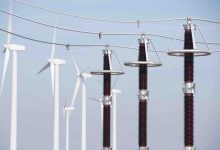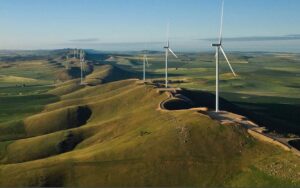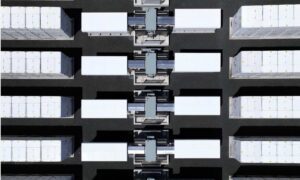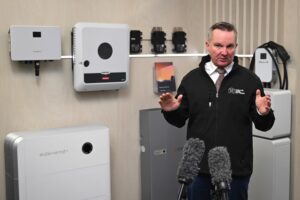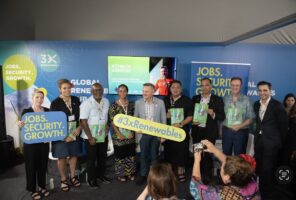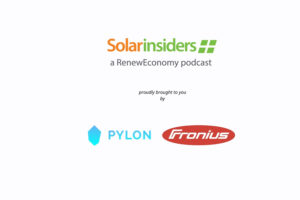Tony Abbott, my opponent for the seat of Warringah at the next federal election, thinks taxpayers should subsidise the building of new coal fired power stations. He believes this will reduce power prices. He is sadly mistaken.
One thing Mr Abbott and I both agree on is the need to reduce power prices. However, I and Labor believe the only sustainable way to do that is to increase the generation of low-cost energy from renewable resources.
Mr Abbott likes to suggest that renewable energy is a more expensive way of generating power, when nothing is further from the truth. Snowy Hydro recently contracted 888MW of wind and solar projects for A$40-50/MWh, almost half the wholesale market price of energy.
Snowy Hydro will couple these projects with their existing capacity to offer long term, 100% reliable power for under $70/MWh. The cost of power from new coal power stations is much greater and would require massive, long-term subsidies to operate.
Mr Abbott also likes using the cliché question “what happens when the sun doesn’t shine, and the wind doesn’t blow”? Our homes have water whenever needed, but yet it doesn’t rain 24 hours a day, 7 days a week! Most of us understand storage, why can’t Mr Abbott?
Our grid already had a large amount of firming generation — hydro and gas generation — used to balance out fluctuations in both supply and demand, but we’ll need more firming investment over the coming years. There are already eleven pumped hydro storage projects under consideration around the country, and the market for batteries, both large and small, is growing impressively.
On top of that, when the sun’s not shining, the wind is very often blowing somewhere on our vast continent. As NSW Energy Minister Don Harwin argued this past week, AEMO’s recommendation of a strong interconnected national electricity grid, allowing energy generated in one area to be distributed to others, is the low-cost sustainable system Australia is inevitably moving towards.
Mr Abbott is also wrong when he claims that renewables are responsible for electricity price increases. A recent report from the Victorian Energy Policy Centre shows that renewable energy lowers the overall system cost, while the ACCC reports that coal and gas cost inflation has been the second largest cause of retail electricity price rises over the last decade, only behind the cost of gold-plating the network.
Mr Abbott likes to suggest that, if we removed subsidies to renewable energy, it would not be viable. Renewables did receive significant subsidies in the early days, but subsidies have fallen so far under the Renewable Energy Target that most new wind and solar farms are being built without any subsidy.
The irony is that Mr Abbott completely ignores the subsidies provided to the coal generation sector. Taxpayers paid for almost all of our aging coal fired power plants and the powerlines that connect them, which were sold off for a song by state Liberal governments. The coal industry today continues to receive billions of dollars a year in taxpayer subsidies. The diesel fuel rebate claimed by the coal industry alone costs the budget $2 billion per annum.
More importantly, the costs of coal fired power are not the true costs. The full cost of coal power must reflect the major contribution that its emissions make to climate change. An increasingly volatile climate, with more severe droughts and extreme storms, is already costing the economy billions in damage and disruption.
Add to that the emerging evidence of the health costs on communities living near coal fired power stations and it is easy to see that producing more coal fired power is not in our national interest.
Mr Abbott’s defence of his party’s ill-considered “big stick” proposal to give the Treasurer personal powers to force companies to sell assets while claiming his party is the party of free market economics would be laughable if this proposal were not so reckless. Giving a single person such power will reduce investor confidence, increase risk premiums and stymie the flow of capital required to build new generation capacity, thereby pushing up prices.
The ACCC report into retail electricity prices made 56 recommendations — not one of which included the “big stick” Abbott and his protégé Angus Taylor are so keen to wave about.
The Labor party supports free and efficient markets where buyers and sellers are protected with appropriate regulation. One area that requires further consideration in regard to lowering energy prices is how we can make the wholesale energy market more efficient by reducing the concentration of power in an oligopoly. The best way to achieve this and therefore bring prices down is to encourage more competitors to enter the market.
If Mr Abbott and his party truly want to reduce power prices, they should cease their phoney war on renewable energy, drop their reckless “big stick” legislation, cancel plans to subsidise new coal power stations and turn their attention to encouraging more competition in the market.
A stable, clean energy plan agreed with states and aligned with our long-term climate targets will do more to encourage investment and new competition than the policy flip-flops, intimidation and threats that can only prolong high prices.
Dean Harris is the Labor Candidate for Warringah.

